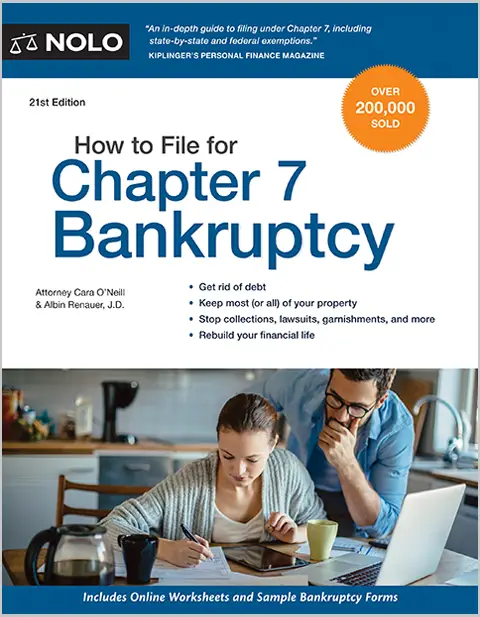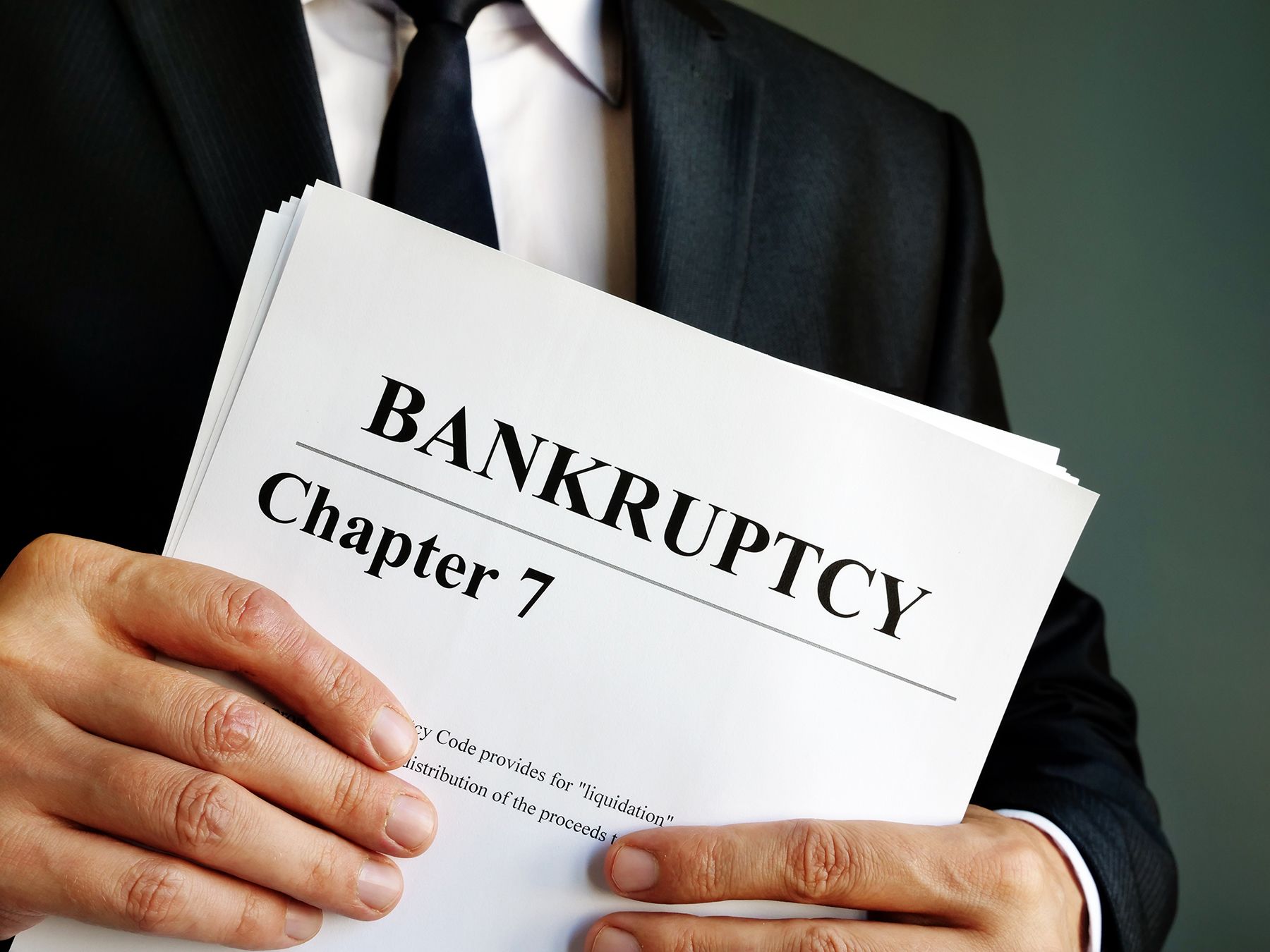Plan And Confirmation Objections
When you file a plan that does not address a creditors claim, they will typically file an objection to the plan. The trustee will also file an objection to your plan if it does not adhere to the required bankruptcy provisions. In most cases, objections will be filed.
The trustee also might file an objection to confirmation. This objection is usually filed after the 341 Meeting, especially if there are amendments to your schedules required or additional documents requested. These objections serve as notice of what needs to be addressed before the confirmation hearing. As with most plan objections, these are resolved without any incident or need for further litigation.
What Is The Difference Between Chapter 7 & 13 Bankruptcy
When you declare bankruptcy as an individual, you will probably have two choices for your filing: Chapter 7 or Chapter 13. The bankruptcy chapter that works best for you will be dependent on your financial situation. What might work for one person might not be correct for you, so consult our Pennsylvania bankruptcy attorneysto understand which bankruptcy form should be used.
Our attorneys would be happy to help you decide to file for:
- Chapter 7: When your debt is overwhelming and your income is likely not enough to make a significant difference in repaying it, you might benefit most from using Chapter 7 bankruptcy or liquidation bankruptcy. Chapter 7 bankruptcy can discharge large amounts of unsecured debt all at once, but it can also make a noticeable impact on your credit score. You might also risk some of your assets to repossession if you do not qualify for all of Pennsylvanias bankruptcy exemptions.
- Chapter 13: When your debt could be manageable with some help and adjustments, Chapter 13 bankruptcy or the wage earnings plan might be right for you. Under Chapter 13, your debts will be reduced through negotiations with creditors. You will then have three to five years to repay the remaining debt amount as best you can. Anything that remains after the repayment plan ends can be discharged. Although you are not eliminating your full debt, Chapter 13 can still be the best option because it protects your credit score and assets more thoroughly than Chapter 7.
What Are Chapter 7 Bankruptcy Exemptions
The purpose of bankruptcy is to help people get back on their feet and regain control of their financial situation. In order to help with this process, the government created a set of exemptions to help individuals maintain their quality of life, while still resolving their issues with creditors.
If your property is âexemptâ you get to keep that property. If a property is not exempt, then your bankruptcy trustee can sell it and divide the profit among your unsecured creditors.
Dont Miss: Which Of The Following Phrases Best Summarizes Chapter 7 Bankruptcy?
Don’t Miss: Which Of The Following Phrases Best Summarizes Chapter 7 Bankruptcy?
What Is Chapter 13 Bankruptcy
Chapter 13 bankruptcy is a payment arrangement that allows you to pay back some, but not necessarily all, of your debt. Chapter 13 is often a good solution for people who do not qualify for Chapter 7 because their incomes are too high. However, Chapter 13 is not limited to high-income earners. If you are behind on payments to a secured creditor and wish to keep the property, Chapter 13 may allow you to do so. >>More
What About My Credit Score

If you are looking to file bankruptcy in PA, you need the right lawyer. You want a Pennsylvania bankruptcy lawyer who will not only file your bankruptcy, but go the extra mile to rebuild your credit score. Thats why we do more than simply help you eliminate your debt. We work with you to rebuild your credit score after bankruptcy!; Our clients receive free access to 7 Steps to a 720 Credit Score. If credit score is a concern, you should strongly consider bankruptcy over other options. Bankruptcy wins almost every time when you consider bankruptcy vs. debt settlement. Many of our clients see their credit score go up after bankruptcy! Thats because we know how bankruptcy affects your credit score.
Don’t Miss: Filing Bankruptcy In Wisconsin
Chapter 7 Bankruptcy In Pennsylvania
Also known as debt liquidation, Chapter 7 bankruptcy will allow you to get rid of all of your dischargeable debt within a matter of months. This includes credit card debt and medical bills. Our Pennsylvania bankruptcy lawyer will help you determine whether you qualify for Chapter 7 bankruptcy in Pennsylvania. Pennsylvania has a number of state specific issues that arise in Chapter 7 bankruptcy. You need a Pennsylvania bankruptcy attorney who knows how to navigate these issues.
Contact A Pennsylvania Bankruptcy Lawyer Today
Take back control of your financial future. Providing both immediate relief and long-term solutions, bankruptcy could be the answer you have been looking for. Our Pennsylvania bankruptcy lawyer strivse to make this process as easy as possible. Contact our law office today to schedule a free bankruptcy consultation! Call or reach out to your closest Pennsylvania office:
Also Check: How Many Donald Trump Bankruptcies
How To File Bankruptcy In Pennsylvania For Free
This guide will walk you through the steps necessary to file a Pennsylvania bankruptcy on your own, one step at a time. Filing on your own, and without an attorney, is called filing âpro seâ and is a popular option for low-income filers with simple Chapter 7 bankruptcy cases.
Where Do I File For Bankruptcy
Most people file for bankruptcy in the federal district court closest to where they live. However, if you run a business in a different district and most of your property is located there, you may have to file in that location.
Also, if you’ve moved in the past six months , you may have to file in the federal district court where you used to live. It all depends on where the greater portion of your property has been for most of the past 180 days.
Wherever you’re required to file, know that you can handle most of your business with the court, including filing your bankruptcy forms, by mail. However, you will need to visit the courthouse in person at least once, for a meeting with the bankruptcy trustee.
For more details, and to find your local court, see our articles on How to File for Bankruptcy.
Read Also: What Is A Bankruptcy Petition Preparer
Can I Get Free Bankruptcy Forms
Yes! All official federal and local bankruptcy forms are available free of charge. You can find the links you need by visiting our bankruptcy forms page.
If you want copies of bankruptcy forms with plain-language instruction and tips for filling them out, you might want to use a good self-help book like How to File for Chapter 7 Bankruptcy or Chapter 13: Keep Your Property and Repay Your Debts Over Time, both published by Nolo.
How Do I Take The Courses Required Before I File
Before you file for bankruptcy,you must take a âcredit counseling course.â After filing, you must take a âFinancial Managementâ or Debtorâs Education Course.â You can take each course online or over the phone in an hour or so. There are many approved providers,and your attorney can recommend some. The cost of the course is minimal.
Read Also: How Many Times Has Donald Trump Filed For Bankruptsy
Eastern District Of Pennsylvania Requirements
The Eastern District is divided into two divisions with courthouses in Philadelphia and Reading. The Philadelphia division handles cases for Bucks, Montgomery, Delaware, Philadelphia, and Chester counties. The Reading Division takes care of cases out of Berks, Lehigh, Northampton, and Lancaster counties. There are no special local forms required for a Chapter 7 bankruptcy case in this district, but the court has specific formatting requirements for your .
What Are Bankruptcy Exemptions

Every state has laws that designate certain types of property that are off-limits to unsecured creditorsâthat is, creditors that don’t have a lien on your property. Credit card debt and medical bills are the two most common types of unsecured debt.
Unsecured creditors cannot force you to sell your exempt property to pay off your debt. Even if the creditor goes to court, wins a court judgment against you, and takes steps to attach a lien to your property, you are still entitled to your exemption amount before the creditor gets any proceeds form a sale.
If you sell your exempt property voluntarily, the creditor has a right to have its lien paid from the sale proceeds before you receive anything. As a practical matter, most of the property of people who file for Chapter 7 bankruptcy is exempt, so they don’t want to sell what they have. If all of your property is protected by exemption laws, you are said to be “judgment proof”âmeaning that creditors can’t collect anything from you, whether or not you file for bankruptcy.
One important thing to remember is that an exemption protects only the “equity” in your property. That’s the difference between the value of the property and what you owe to creditorsâlike your mortgage lenderâwho have a secured interest in it.
Example
More Information
To learn what property is exempt in your state, see the Exemptions section of this website.
Don’t Miss: When Does Chapter 7 Bankruptcy Fall Off Credit Report
Will I Lose My House
Whether or not you will lose your house depends on the value of your house, and the amount owing on your mortgage. Most people that declare bankruptcy in Ontario and own a house will have a mortgage on the house.
The Ontario Execution Act stipulates that your principal residence is exempt from seizure IF the equity in your home does not exceed $10,783. ;If the equity does exceed $10,783 then your principal residence is subject to seizure and sale.
In that case you are required to pay the equity in your house if you go bankrupt. . For more information read our FAQ What Happens To My House In A Bankruptcy?
What Bankruptcy Can Do
Bankruptcy allows people struggling with debt to wipe out certain obligations and get a fresh start. The two primary bankruptcy types filedChapter 7 and Chapter 13 bankruptcyeach offer different benefits and, in some cases, treat debt and property differently, too. Youll choose the chapter thats right for you depending on your income, property, and goals.
Here are some of the things you can expect regardless of whether you file for Chapter 7 or 13.
Dont Miss: How Many Donald Trump Bankruptcies
You May Like: What Is Epiq Bankruptcy Solutions Llc
The Chapter 7 Discharge
A discharge releases individual debtors from personal liability for most debts and prevents the creditors owed those debts from taking any collection actions against the debtor. Because a chapter 7 discharge is subject to many exceptions, debtors should consult competent legal counsel before filing to discuss the scope of the discharge. Generally, excluding cases that are dismissed or converted, individual debtors receive a discharge in more than 99 percent of chapter 7 cases. In most cases, unless a party in interest files a complaint objecting to the discharge or a motion to extend the time to object, the bankruptcy court will issue a discharge order relatively early in the case generally, 60 to 90 days after the date first set for the meeting of creditors. Fed. R. Bankr. P. 4004.
The grounds for denying an individual debtor a discharge in a chapter 7 case are narrow and are construed against the moving party. Among other reasons, the court may deny the debtor a discharge if it finds that the debtor: failed to keep or produce adequate books or financial records; failed to explain satisfactorily any loss of assets; committed a bankruptcy crime such as perjury; failed to obey a lawful order of the bankruptcy court; fraudulently transferred, concealed, or destroyed property that would have become property of the estate; or failed to complete an approved instructional course concerning financial management. 11 U.S.C. §;727; Fed. R. Bankr. P. 4005.
Q1 How Does The Trustee Decide To Sell My House
The trustee may or may not sell your home depending on its equity value. If its less than the exemption amount, then the trustee must not sell your house. If you have significant equity left, the trustee will sell it.;
The goal of selling your property is to get funds that can be used to pay off your unsecured debts. If your home gets sold, the trustee must give you first the exemption amount before paying your debts to the creditors.
Also Check: How To File Bankruptcy In Wisconsin
Can I Keep My House If I File For Bankruptcy In Pennsylvania
Your house is usually one of the most important places for you. You may have fought long and hard to get it, and you may not want to give up the everlasting memories you forged there. However, all of these great things may be in jeopardy when your creditors try to take it away from you. Unfortunately, you could lose your home to your creditors if you build up excess debt. However, there are ways to protect your home from your creditors during bankruptcy proceedings. Young Marr & AssociatesPennsylvania bankruptcy lawyers invite you to keep reading as we discuss whether you can keep your house if you file for bankruptcy in Pennsylvania.
Take Bankruptcy Course 2
Bankruptcy law requires that you also complete a second credit counseling course within a specified time-frame of filing your case. Itâs best to do so soon after filing your case, and before your scheduled 341 meeting. Make sure you take the course through a credit counseling agency thatâs been approved to offer it for Pennsylvania bankruptcy cases.
When done, youâll get a certificate of completion which needs to be officially processed by the clerk just like when you first filed your Pennsylvania bankruptcy forms. Some credit counseling providers will file the certificate for their clients. If yours doesnât, make sure you mail a copy to the clerkâs office as soon as possible after getting it.
Read Also: What Is Epiq Bankruptcy Solutions Llc
Chapter 7 Vs Chapter 13 Bankruptcy
Bankruptcy cases filed under Chapter 7 and Chapter 13 can get rid of debts. However, there are some substantial differences between the two chapters of bankruptcy.;
A Chapter 13 bankruptcy is a voluntary repayment plan. You reorganize your debts into a monthly plan based on your income, expenses, debts, assets, and other factors. Most Chapter 13 plans are 60-month plans. However, some individuals might qualify for a three-year plan. A Chapter 13 bankruptcy case may be best if you need to stop a foreclosure or repossession. Chapter 13 plans can also be used to pay tax debt or catch up on domestic support payments.
A Chapter 7 bankruptcy in Pennsylvania is quicker and less costly. Most no-asset Chapter 7 cases are discharged and closed within four to six months after filing the bankruptcy petition. Most unsecured debts are discharged in Chapter 7 without the need to pay any more money to the creditors.;
However, Chapter 7 bankruptcies do not have repayment plans. Therefore, if you are behind on your house payments or car payments, a Chapter 7 case might not help you save those assets.;
On the other hand, you can get rid of those debts by surrendering the assets. You would not need to worry about a deficiency judgment in Chapter 7. A deficiency judgment is money that you owe a creditor even after the creditor takes your home or vehicle and sells it to repay the debt.
Figuring Out If Youre Eligible For Chapter 7

To qualify for Chapter 7 bankruptcy, your bankruptcy forms need to show that you donât have enough income to repay your creditors a certain amount. You can accomplish this by either:
- proving that your income is below the Pennsylvania median income for your household size, or
- comparing your income to expenses under a complex formula called the bankruptcy means test calculation to show that youâre not able to pay.
If your income is above the median income for your state and family size and the means test shows you have enough disposable income to make reasonable payments to your creditors, the bankruptcy court may dismiss your caseâor you may be allowed to file bankruptcy under another chapter of the bankruptcy code, like Chapter 13.
Our free means test calculator can do the math for you, so you can figure out whether you’ll qualify for Chapter 7.
Read Also: Does Declaring Bankruptcy Affect Your Spouse
Preparing To File A Claim